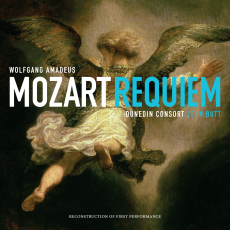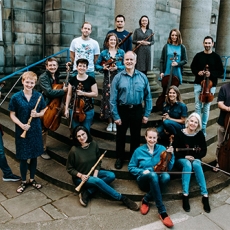Dunedin Consort - Mozart: Requiem - The Guardian
Most new recordings of Mozart's famously unfinished Requiem have a new completion of the score as their selling point. Scholars queue up to offer their ideas of what the work might have sounded like had Mozart lived to complete it himself, and demonstrating in the process that what his pupil Frank Xaver Süssmayr did to make the work performable - he produced the version of the score that was always heard until the last quarter of the 20th century - was nothing more than the most routine hack work.
John Butt's approach with the Dunedin Consort, though, is different. He maintains that whatever the weaknesses in Süssmayr's work, he did at least know Mozart, and the version that he came up with proved hugely influential for the next two centuries.
The Dunedin version is described as a "reconstruction of the first performance" - in other words, an attempt to realise the score as Süssmayr completed it, and which was heard at the benefit concert for Mozart's widow, Constanze, in Vienna in 1793. As Butt points out, however, there may have been an even earlier performance of the score that Mozart completed, at his own funeral in 1791, and a reconstruction of that performance, which would have consisted just of the Requiem Aeternam and the Kyrie, with the likely forces - eight singers, with single wind and lower strings but doubled violins - is also included on this disc.
The choir and orchestra used for the reconstruction of the 1793 complete performance is larger - a choir of 16, including soloists, and an orchestra of 30, including a fortepiano continuo. Butt's account is as much an exploration of the sound world that the 1793 audience would have experienced as it is of the rights and wrongs of what Süssmayr did. Anyone used to a suave choral sound in performances of the Requiem might be surprised by the almost granular texture here, in which every voice makes its own distinctive contribution, and by the pungency with which the orchestral writing registers. There's a real energy, with tremendous climaxes that belie the scale of the forces involved. It's not going to be the last word on what will remain the unsolvable riddle of Mozart's final masterpiece, but it's a salutary corrective to some of the academic speculation.

